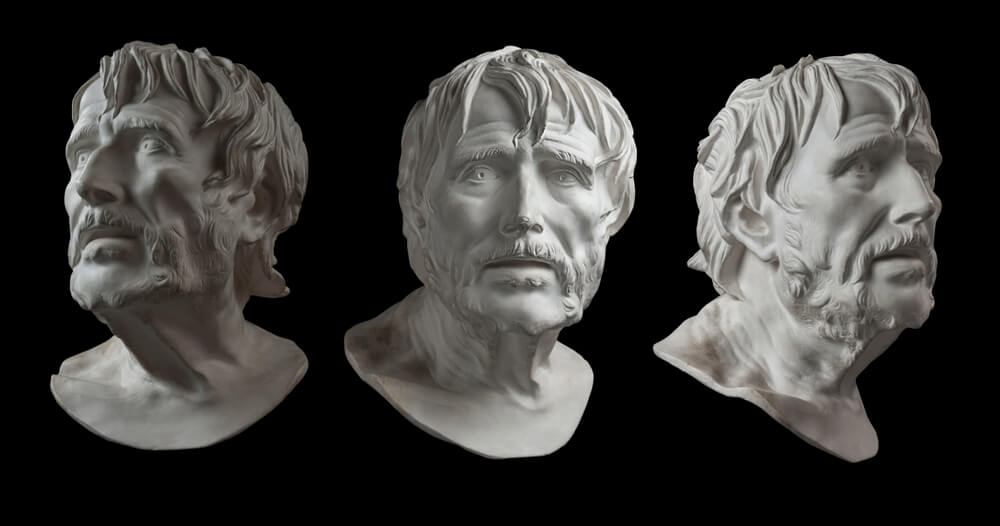Although this may seem like a lie, from the time of Seneca, an intellectual of the Roman Empire at the beginning of the Christian era, there was talk of anxiety, of course that the feeling did not have that name, nor was there science to study. as psychology does today, but philosophers at the time barely reflected on human behavior, in this process they have been able to create many strategies to intervene in the best possible way in everyday situations, including ways to manage anxiety.
Seneca went through a very difficult time, was senator of the Republic during a period of conflict and decomposition within the Roman Empire, has witnessed the governments of Tiberius, Caligula, Cluudio and Nero, even tutor and counselor to the latter, who is undoubtedly one of the most hated Roman emperors.
- In addition.
- Séneca was also one of the main representatives of the Stoic philosophical school.
- Members of this movement had a particular interest in reflecting on manners and customs.
- It makes a lot of sense if we remember that this time was characterized by a huge ethical influence.
- Degradation that eventually led to the destruction of the Empire.
“There is destiny, doom, and bad luck; the unpredictable and, on the other hand, what is already determined. So how is there bad luck and how is there destiny, philosophers?-Seneca-
Stoicism was born in Greece, from the thinker and philosopher Zeno de Coteio, a trend that reached enormous popularity and that is why, at the time, its principles had an impact on the then nascent Christianity, which proposed above all a life marked by moderation. “Nothing is enough for someone who is too small, ” they said.
The thinkers addressed a multitude of topics, but their contemporaries were mainly interested in the appreciation of ethics, they promoted the idea that it is possible to achieve inner peace when we build a life away from excessive material comfort, they argued that a virtuous life was already a Happy life.
The Stoics rejected the idea of man being carried away by passions to be happy, they saw this position as a source of degradation and suffering, they proposed the development of self-control because they considered a human being living by reason to be happier. They also said that there is nothing good or bad about itself, but that everything becomes harmful when you encounter excess.
Seneca, like any good stoic, sought to live a virtuous life, was an intelligent man, always recognized as a privileged spirit by his contemporaries, his main work was Letters to Lucilius, which he wrote when he left Nero’s government and was persecuted by him.
This great philosopher saw how many people were mired in worry, this is what we now call anxiety. In light of this observation, he said, “What I advise you to do is not get unhappy before the crisis occurs, because the dangers you fear so much will never reach you and certainly not yet reach you. “
In this way, Seneca has already said what certain currents of psychology attest much later: anxiety is the feeling of expecting the worst without it happening, that is, it is a subjective perception that leads us to expect the worst. something bad that hasn’t happened yet.
Seneca added another thought to the previous reflection: “We have a habit of exaggerating, imagining, or anticipating pain. “In other words, we begin to suffer before there is any reason to do so. The mere fact of anticipating a pain already makes us stay in your company, even if it is far from coming or will never come.
The same goes for anxiety. A state of anticipation that awaits, of suffering, that one day suffering will come. They say it’s about being “fed up with the future. ” The person looks forward and sees only the worst, the anxious person is afraid of being robbed, even if no one tries, thinks that an earthquake will tear down his house at any time or that his loved one will make him leave it sooner or later.
Do we know that, at least with some frequency, we are able to realize what we think so much?They’re self-fulfilling prophecies. Some things don’t even happen, but with our behaviors and blockages, we end up directing the facts in one direction, having a direct influence on events. When that happens, we think it’s a confirmation of what we’ve believed from the beginning, but it’s actually a consequence of our actions.
Imagine, for example, that we have references from a person, and those are not very good, if we got to know this person it would not be strange if we were not very kind or receptive to him. when treated in this way, the person ends up not treating us very well as a reflection of how we treat him ourselves, so we confirm our suspicions when we created the situation.
Perhaps, as Seneca proposes, we should simply live in the present in which we are, without constantly preparing for what can happen. Let it flow, let the time come. May events take their course, be in the present, and not live according to all that may be in the future.

